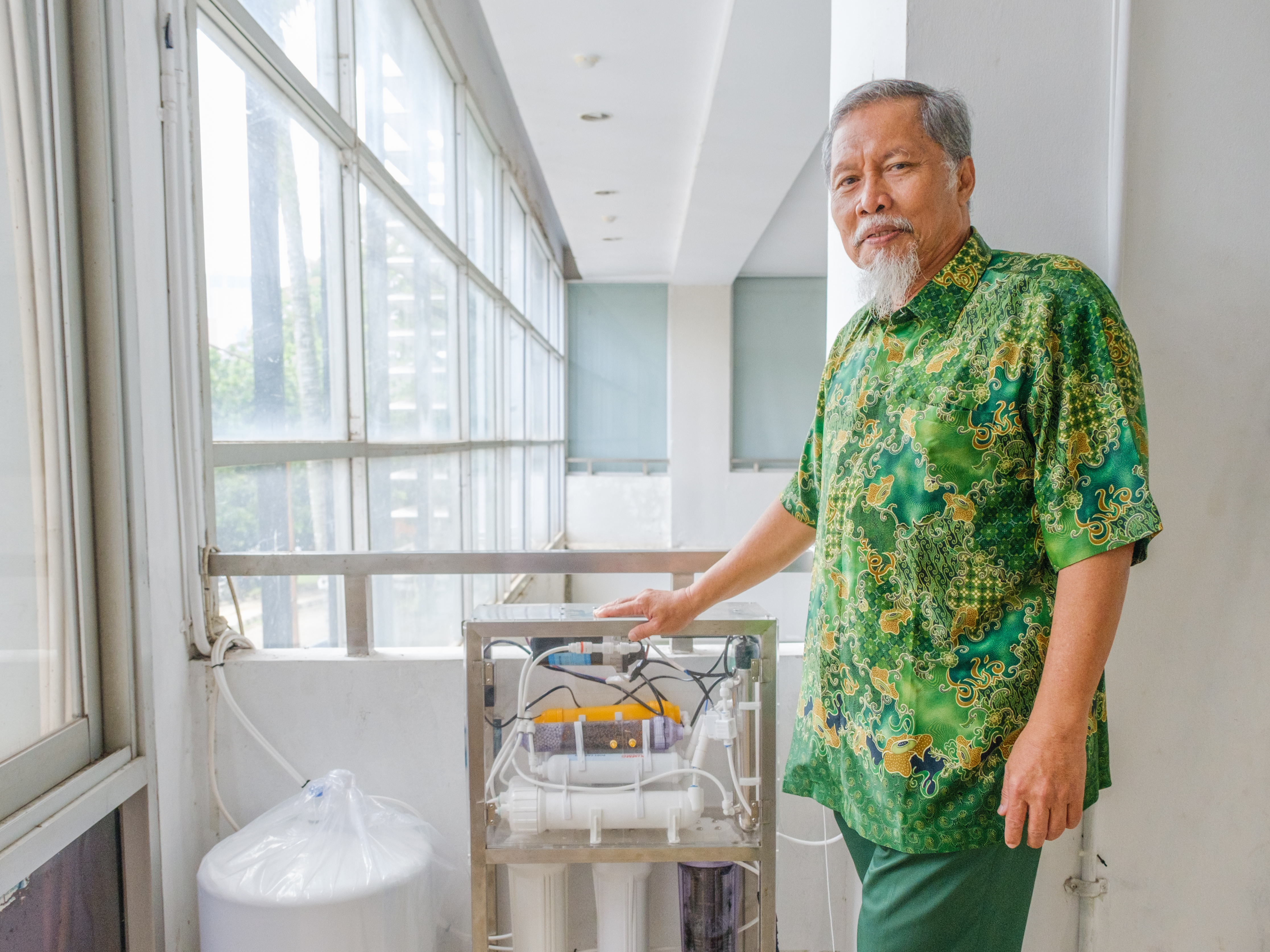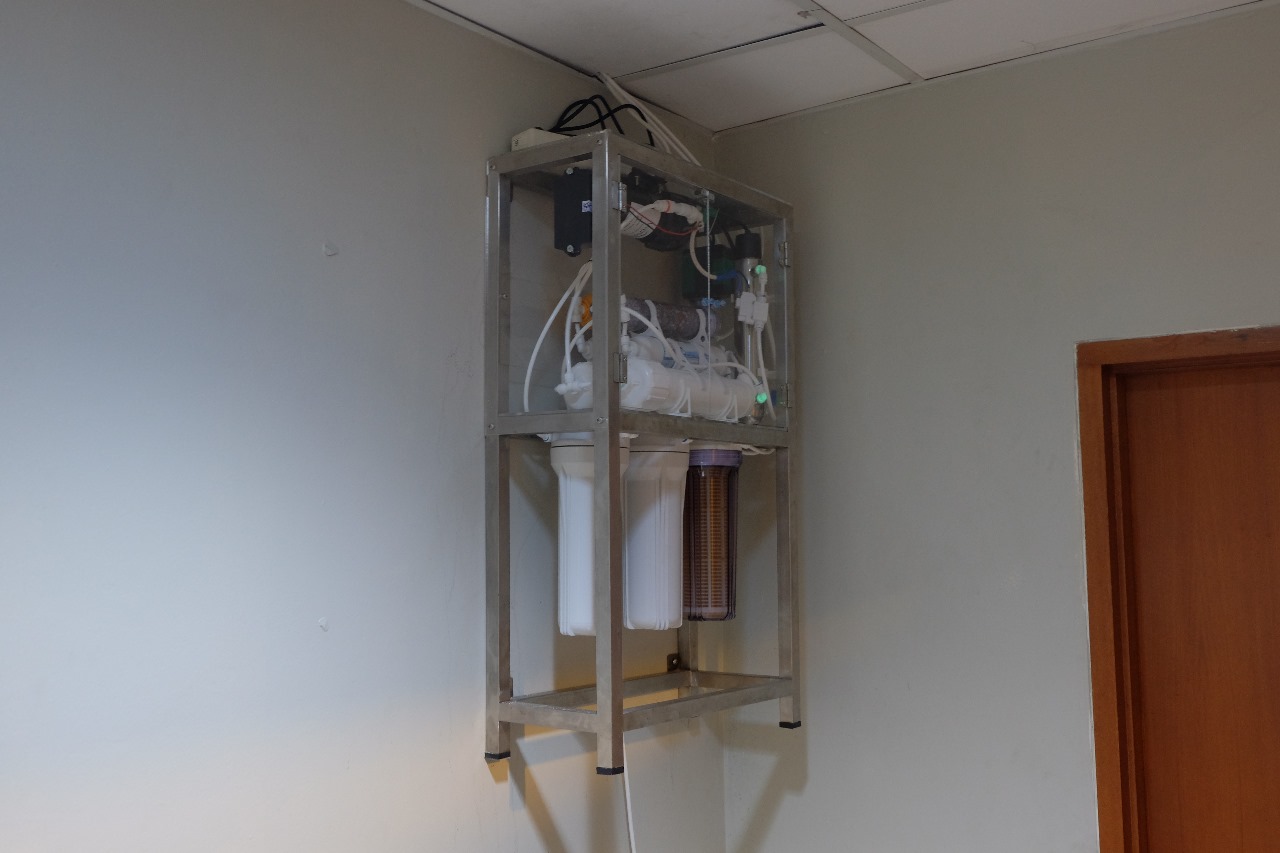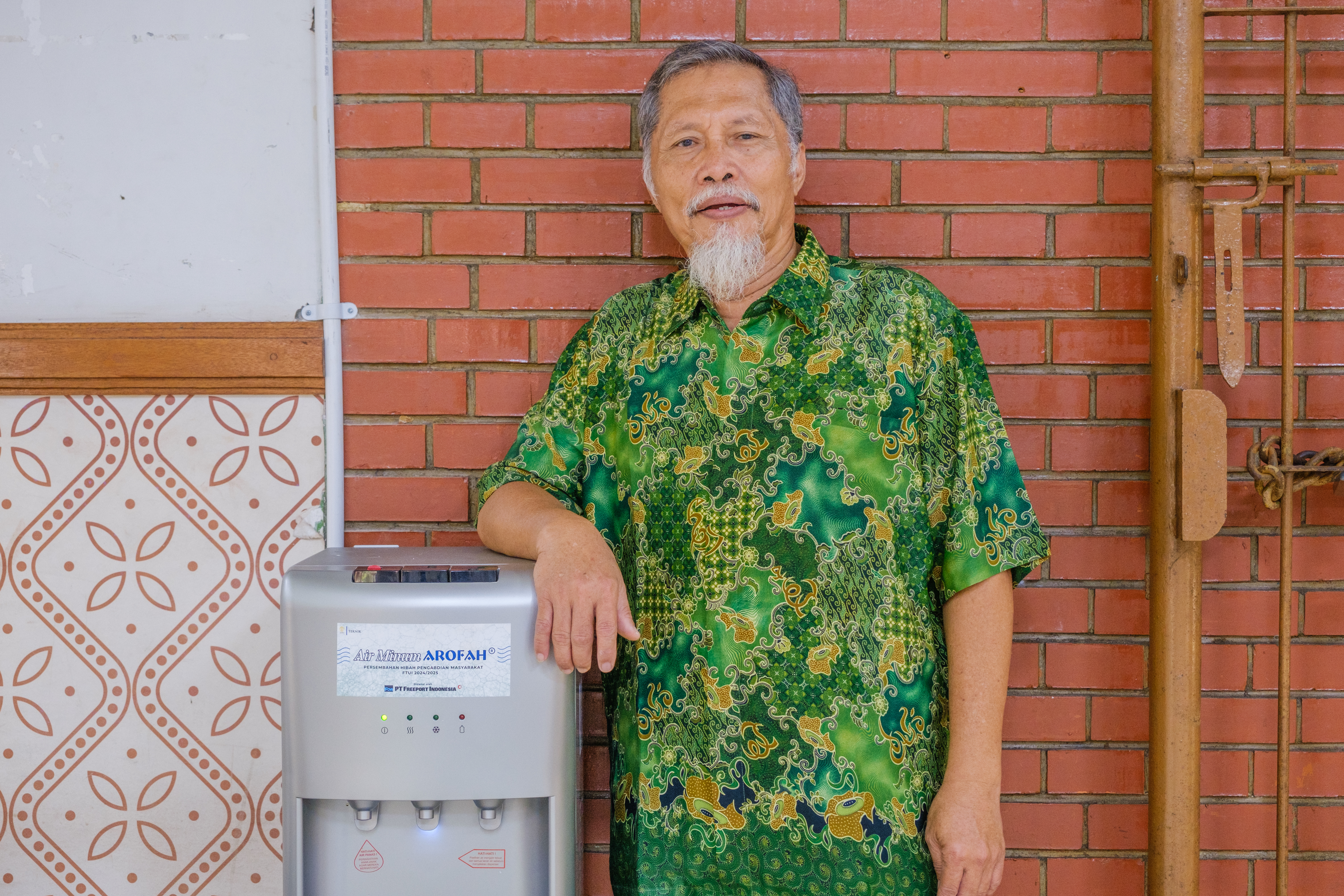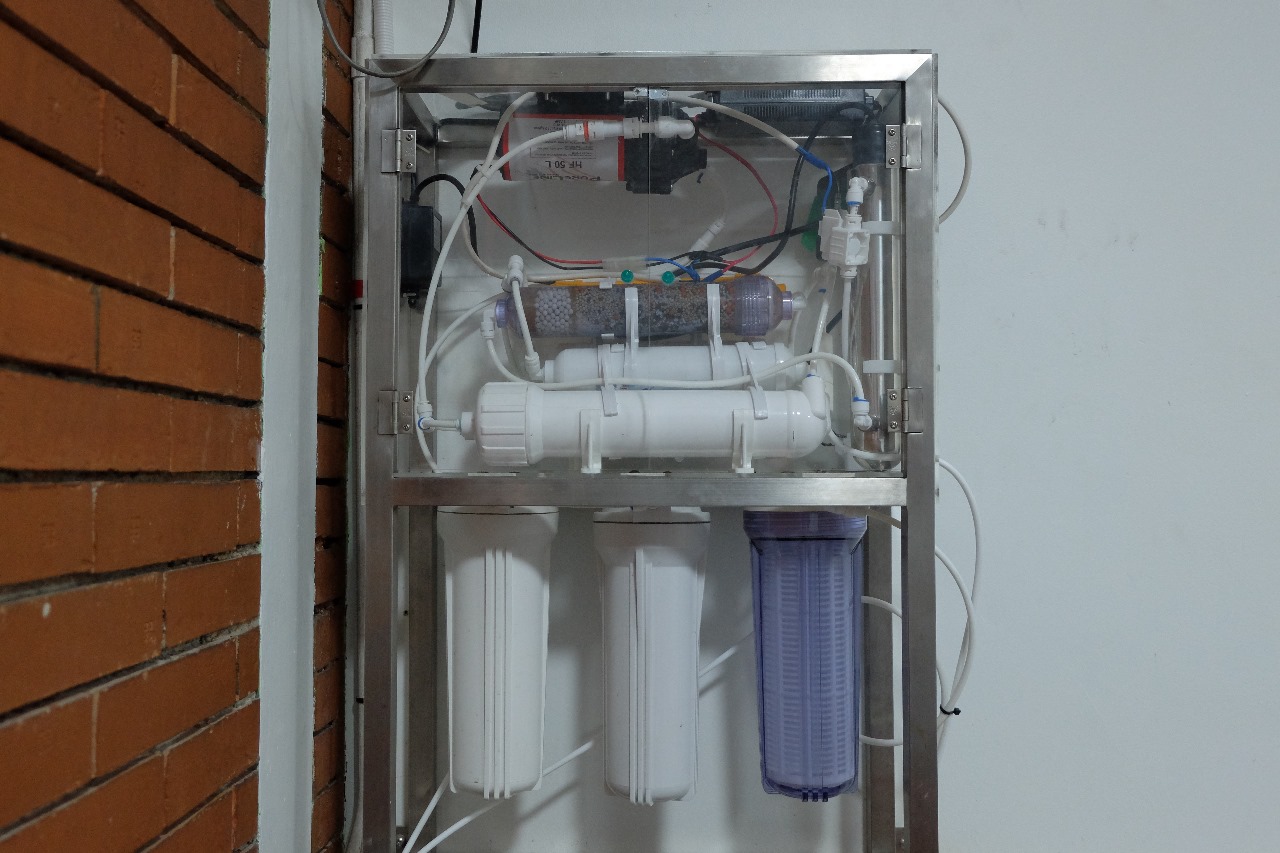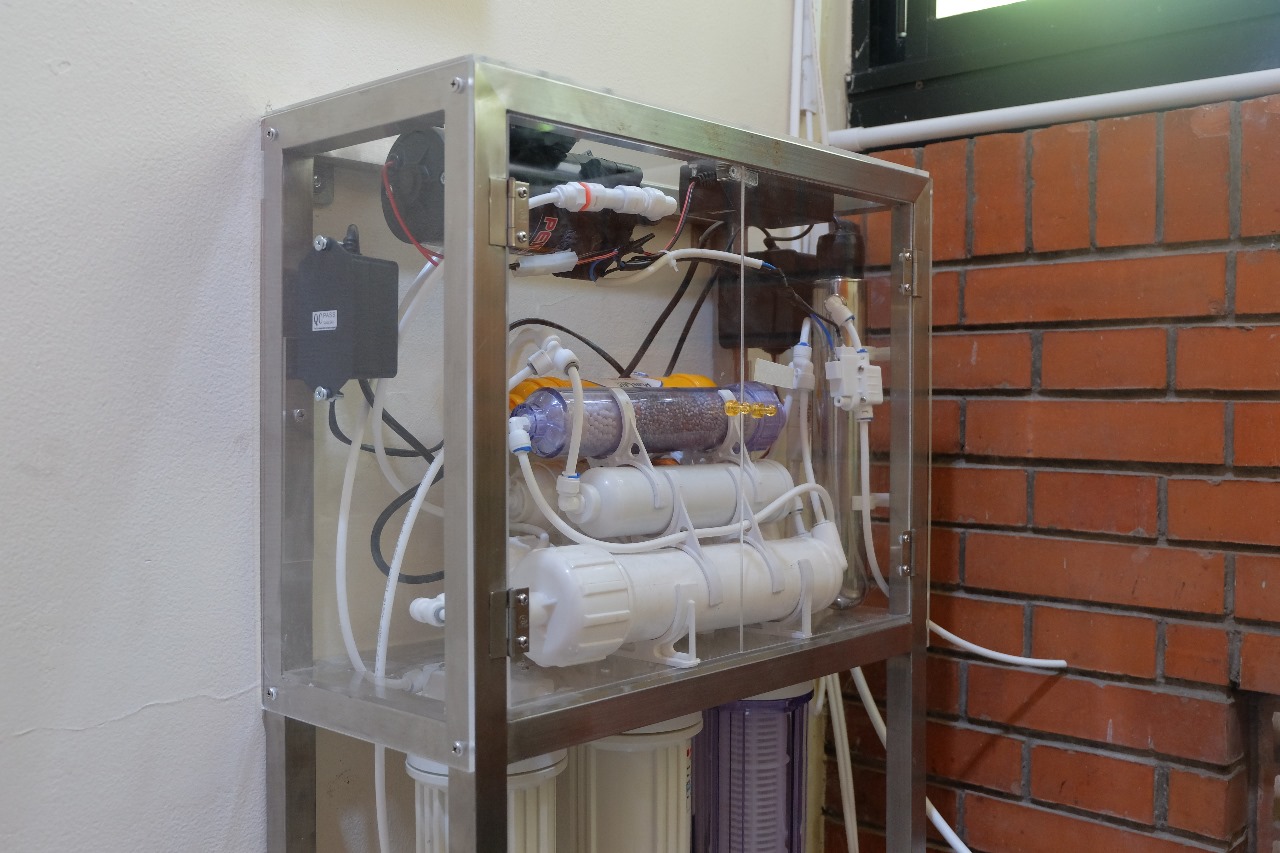Data from the Ministry of Environment and Forestry shows that Indonesia produces around 3.2 million tons of plastic waste annually, including waste from bottled water packaging. To address this issue, a lecturer from the Faculty of Engineering, Universitas Indonesia (FTUI), Prof. Dr. Ir. Setijo Bismo, DEA, developed an environmentally friendly water purification device called “Arofah.” This device aims to provide free access to quality drinking water while reducing plastic waste from bottled water consumption.
Arofah stands out from other water purification systems because it uses multiple filtration stages, including reverse osmosis technology that produces water with optimal mineral content, is sterile, and has a hexagonal structure. This technology ensures the water is safe for consumption without relying on bottled water.
Arofah can treat various types of raw water into potable water. It can process rainwater, well water, municipal water (PAM), and even water from natural sources such as lakes and rivers. Additionally, it can purify water from air conditioners and floodwater, which often pose challenges during the rainy season. “With its advanced purification technology, Arofah offers an effective solution to ensure the availability of clean water from various accessible sources,” said Prof. Bismo.
According to him, the water produced by Arofah is 100% safe for consumption as it is purified and sterile. Arofah has undergone laboratory testing at the Department of Chemical Engineering, FTUI, for over a year. It will be further tested at the Regional Health Laboratory (Labkesda) to ensure its safety for public use.
After successful trials, Arofah began operating within the FTUI campus in early 2025. 19 Arofah units have been installed at 17 strategic locations, including the Dean’s Building, department buildings, faculty canteen, FTUI Salemba lecture building, and the security post. This initiative allows hundreds of lecturers and administrative staff to shift from bottled water to a more environmentally friendly clean water source.
Deva Alifah, a staff member from the Department of Chemical Engineering FTUI and one of the users, expressed her satisfaction with the quality of water produced by Arofah. “The water from Arofah feels lighter and fresher compared to regular bottled water. It’s also convenient since we no longer need to buy water gallons,” said Deva.
The Arofah innovation, created by Prof. Bismo, was designed through research that began in 2005. The research was realized through a Community Service Grant in August 2024, funded by PT Freeport Indonesia. Initially developed for small-scale use, such as in households, the device is now being scaled up to meet larger demands and has the potential for industrial application.
In developing this device, Prof. Bismo highlighted several challenges, such as the limited availability of affordable tools and technology, a lack of adequate human resources, and public perception that bottled water is superior. Nonetheless, he hopes this innovation can support communities, companies, and industrial areas in providing clean water more cost-effectively and eco-friendly. He also encourages young researchers to continue and further develop this project.
Dean of FTUI, Prof. Kemas Ridwan Kurniawan, S.T., M.Sc., Ph.D., expressed his support for the development of Arofah. He stated, “We fully support this innovation and hope the Arofah technology continues to grow, enabling more communities to enjoy free access to quality drinking water. The presence of Arofah contributes to clean water provision and supports environmental sustainability and technological innovation in water purification.”
***
Public Communication Office
Faculty of Engineering Universitas Indonesia

